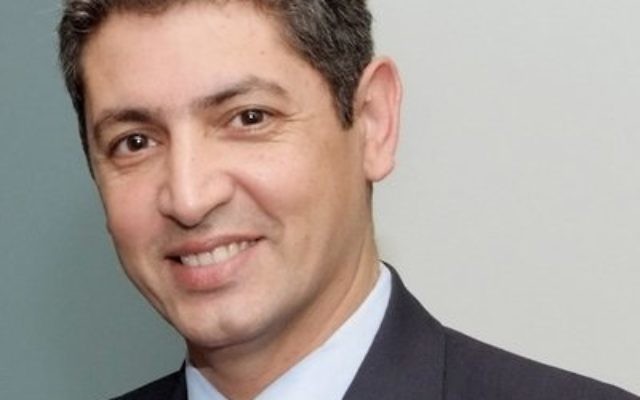Emory Classroom Lures Envoy Back to Atlanta
Former consul general to the Southeast Reda Mansour is back in Atlanta as a visiting professor this academic year at Emory University.

Ambassador Reda Mansour, who served as Israel’s consul general to the Southeast from 2006 to 2010 and became the dean of Atlanta’s consular corps, is back in town as a visiting professor this academic year at Emory University.
The former Israeli envoy to Ecuador and Brazil chose to return to Atlanta to teach through the Israel Institute because his longest diplomatic mission was here, and he has a network of friends and contacts in place.
“This is a new experience. This is the first time I have built entire courses, new courses, for a foreign university,” he said.
Mansour is teaching three courses about Israeli history, society and politics this year. His diplomatic experience has prepared him well for teaching, he said. “I probably spoke at 50 to 100 universities as a diplomat. Everywhere from Washington state in the West to Florida on the other side of the country.”
Mansour said not all universities foster the academic environment he was looking for.
“Emory is a very positive campus. It’s an open place,” he said. “It doesn’t mean that everyone agrees. Some people are more favorable to Israel, and some are more favorable to the Palestinians or the Arab countries, but at least they’re willing to have that dialogue.”
He said he is saddened by what he sees as intolerant campuses. “The academic environment should be an open place where people can say their opinion freely and comfortably and gain the benefit of hearing the other side. Maybe that will make you stronger in your opinions or change your mind.”
In his classroom, he tries to create that sort of open dialogue. He begins courses with news from Israel and invites his class to ask questions about the headlines.
“We are a country that provides a lot of headlines,” he said with a smile.
He likes to contextualize the news for his students, as they tend to have less knowledge of the Middle East than students in universities that are closer to the scene, such as Europe. This is especially true, he said, regarding Israeli society. “The political-diplomatic side may be in the news, but when you get into Israeli society, people are completely out of context. … Israel is such a nuanced country.”
Being Druze in a Jewish-majority country — he was a trailblazer as a non-Jewish career diplomat in Israel — Mansour has a particular interest in, and firsthand knowledge of, minorities within Israeli society. Israel has many different groups with different ways of life, he said, and there are divisions within those groups.
To understand problems occurring worldwide, he said, the issue of minority identity needs to be addressed. “If we want to manage this chaotic issue, we need to study it more. … We’re seeing a rise in anti-Semitism, white supremacy. … We need to study this issue and manage it in a more successful way.”
That’s why in class he focuses on minorities in Israel.
Similar issues can be seen around the world as minority ethnic groups desire national independence. “We even now see it in Europe,” he said, referencing the escalating political conflict between the independence-minded region of Catalonia and the national government of Spain. “What you’re seeing in Spain might become the Basque issue. Then it will be France and Spain. That could spread to England and become the Scottish issue.”
Mansour is a strong advocate for increased cooperation between academia and diplomacy.
He said the academic world mainly deals with theory, and the diplomatic world deals with on-the-ground international relations. Though there is always some crossover, for the most part they stay in their bubbles.
“I would like to see ambassadors teaching,” he said, “and I would like to see professors taking up diplomatic jobs.”
Mansour’s position at Emory is for a year but could be renewed for another year. He said he is pleased to be back in Atlanta with his family, seeing the changes in the city and reconnecting with the community. “It’s a homecoming.”



comments